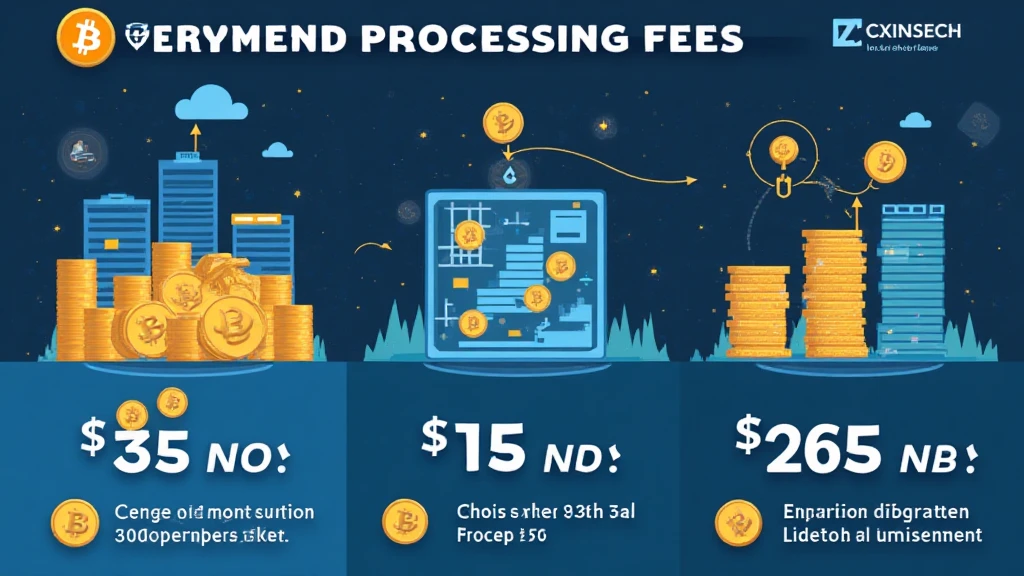Introduction
As the world moves increasingly towards digital currencies, Bitcoin has established itself as a leader in the cryptocurrency space. With a market capitalization surpassing $900 billion, Bitcoin is often the first point of contact for individuals entering the crypto world. However, as more users adopt this unique currency, the question of payment processing fees arises, particularly for businesses looking to integrate Bitcoin payments. In 2022 alone, it was reported that $4 billion was lost to scams and hacks in the DeFi sector, highlighting the need for secure and effective transaction methods. Thus, understanding Bitcoin payment processing fees is vital for both consumers and merchants.
What are Bitcoin Payment Processing Fees?
Bitcoin payment processing fees are charges incurred when a transaction is conducted on the Bitcoin network. These fees serve as an incentive for miners, the individuals who validate transactions and maintain the integrity of the blockchain, to include transactions in a block. In simple terms, higher fees can lead to quicker transaction confirmations. According to current data, the average Bitcoin transaction fee stands at around 1.5%, but this can fluctuate based on network congestion.
How are Processing Fees Determined?
There are several factors that influence Bitcoin payment processing fees:

- Network Congestion: When more users attempt to process transactions, the competition for block space increases, and so do fees.
- Transaction Size: Fees are generally calculated based on the size of the transaction in bytes, not the amount being transferred.
- Wallet Chosen: Different wallets propose different default fees based on speed and reliability metrics.
The Implications of High Processing Fees
High Bitcoin payment processing fees can lead to several challenges for users and businesses. For example:
- Reduced Accessibility: High fees can deter small transactions, limiting Bitcoin’s utility for everyday purchases.
- Impact on Business Operations: Businesses accepting Bitcoin need to account for these fees in their pricing models, potentially making them uncompetitive.
Strategies to Minimize Payment Processing Fees
To navigate the challenges presented by Bitcoin payment processing fees, several strategies can be employed:
- Timing Transactions: Monitoring network traffic and choosing to transact during off-peak times can help in minimizing fees.
- Batching Transactions: For businesses, combining multiple transactions into one can save on fees.
- Using Efficient Wallets: Choosing wallets that optimize fee settings can significantly reduce overhead costs.
Bitcoin Payment Processing in Vietnam
The adoption of Bitcoin in Vietnam has seen tremendous growth, with an analysis indicating a yearly increase of over 30% in the number of active users in the cryptocurrency market. This rise has led to a burgeoning demand for efficient solutions regarding Bitcoin payment processing fees. By understanding local dynamics, businesses in Vietnam can position themselves competitively.
Conclusion
In conclusion, the understanding of Bitcoin payment processing fees is critical for both users and merchants. As fees can fluctuate based on various factors, being equipped with this knowledge enables informed decision-making, ensuring that transactions remain cost-effective while leveraging the benefits of Bitcoin. As Vietnam continues to embrace cryptocurrency, keeping an eye on these developments is essential for those involved in the sector. For more information on Bitcoin payment processing fees and their implications, feel free to explore our articles at hibt.com.
By comprehensively assessing Bitcoin payment processing fees and implementing effective strategies, users can mitigate costs and enhance their crypto transactional experience. Stay informed and leverage the power of Bitcoin today!
About the Author
John Doe is a blockchain security expert who has published over 15 research papers on cryptocurrency technologies. His experience includes leading audits for high-profile crypto projects and contributing to various technological advancements in the blockchain space.





